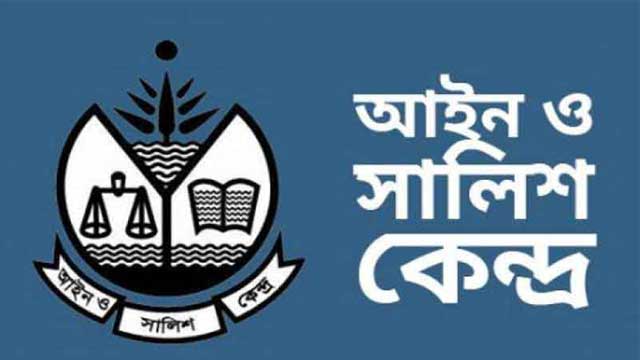Human rights situations have worsened during the COVID-19 crisis in Bangladesh and space for freedom of expression was more squeezed in the outgoing year with more incidents of cases and repressions, observed Human rights organisation Ain O Salish Kendra.
The rights watchdog made the observation while disclosing its human rights reports for the outgoing 2020 at a webinar on Thursday.
According to ASK, 188 people were victims of crossfire, encounter or gunfight with law enforcing agencies in the outgoing year. Of them, 112 were killed in the name of the anti-drug drive.
The annual human rights report showed that freedom of expression suffered the most in the year as the government continued to suppress critical voices using the Digital Security Act.
ASK recorded at least 129 cases under the DSA, where 268 were sued and many were arrested even in the middle of night immediately after the lodging of the cases.
The report showed that border killing continued despite a repeated assurance of zero killings by India’s Border Security Force.
According to the rights group, a total of 42 Bangladeshis were shot to death and seven more were tortured to death by BSF in the year making it one of the deadliest years in recent history.
Opposition BNP was barred from holding rallies and their leaders and activists suffered harassments and arrests over different arson attack cases, the human rights organisation observed.
With 1,627 rape and gang-rape incidents and over 200 more sexual harassment cases, the year was also one of the most unsecured years for women, the report showed.
In the webinar, Ain O Salish Kendra recommended the government not to appoint former bureaucrats at different commissions, including election commission, human rights commission and anti-corruption commission.
Addressing the webinar, ASK executive committee secretary-general Nur Khan said that retired bureaucrats enjoy many facilities from the authorities and therefore cannot act properly.
He said that extrajudicial killings decreased in 2020, but it did not indicate that the phenomenon had completely stopped.
Since the killing of retired army major Rashed Mohammad Sinha Khan in police firing at Teknaf in Cox’s Bazar in July there had been a lot of criticisms over extrajudicial killings, leading to a temporary halt of gunfight incidents, Khan observed.
ASK executive director Golam Monowar Kamal, senior deputy director Nina Goswami and senior coordinator Abu Ahmed Foyzul Kabir spoke in the programme among others.





